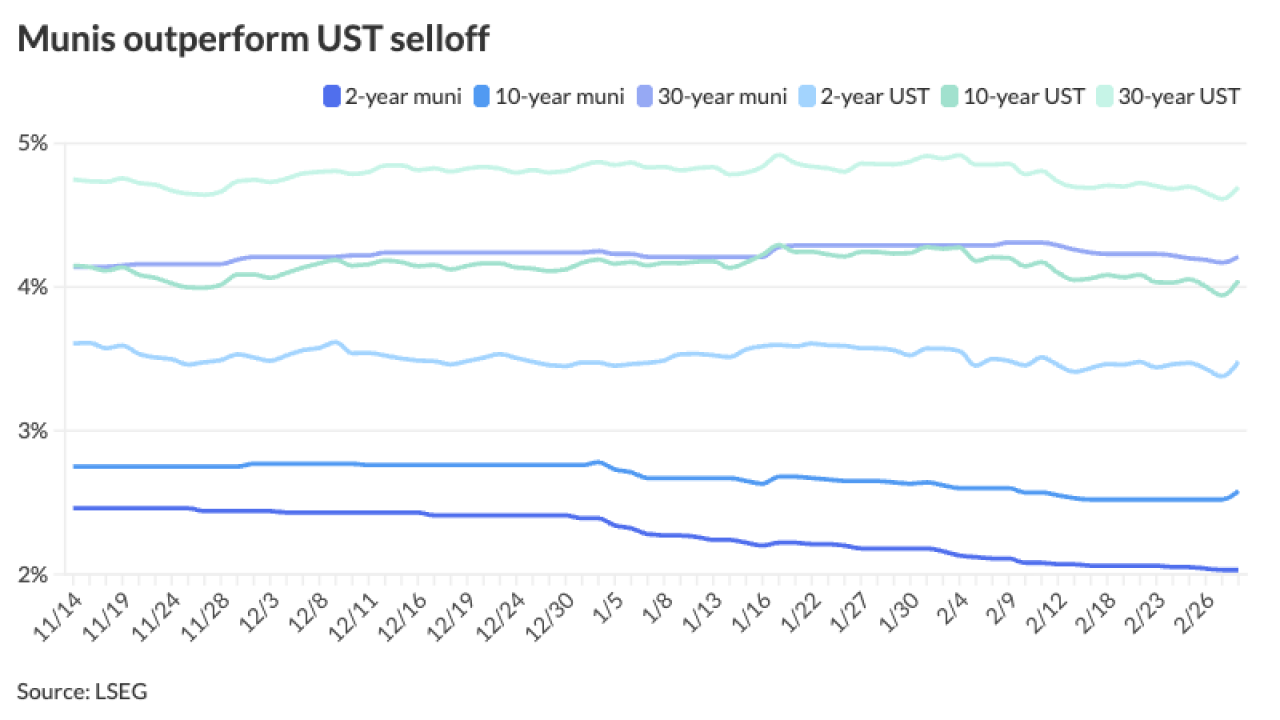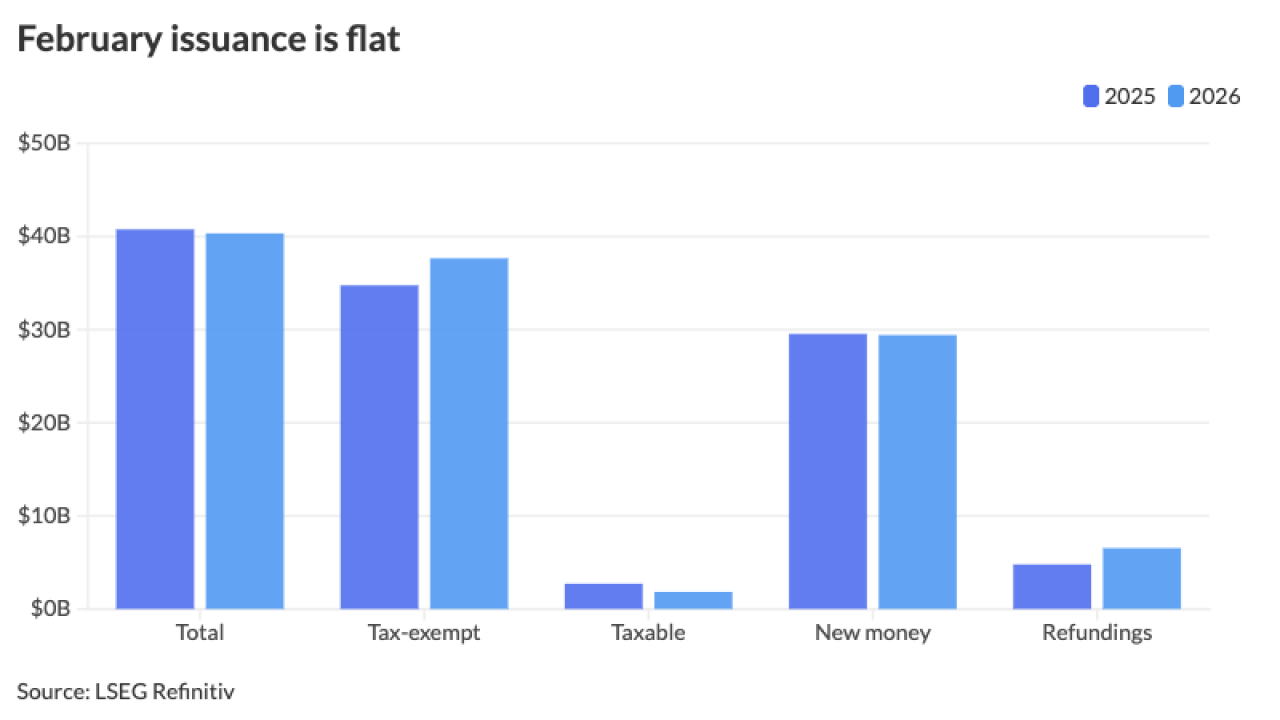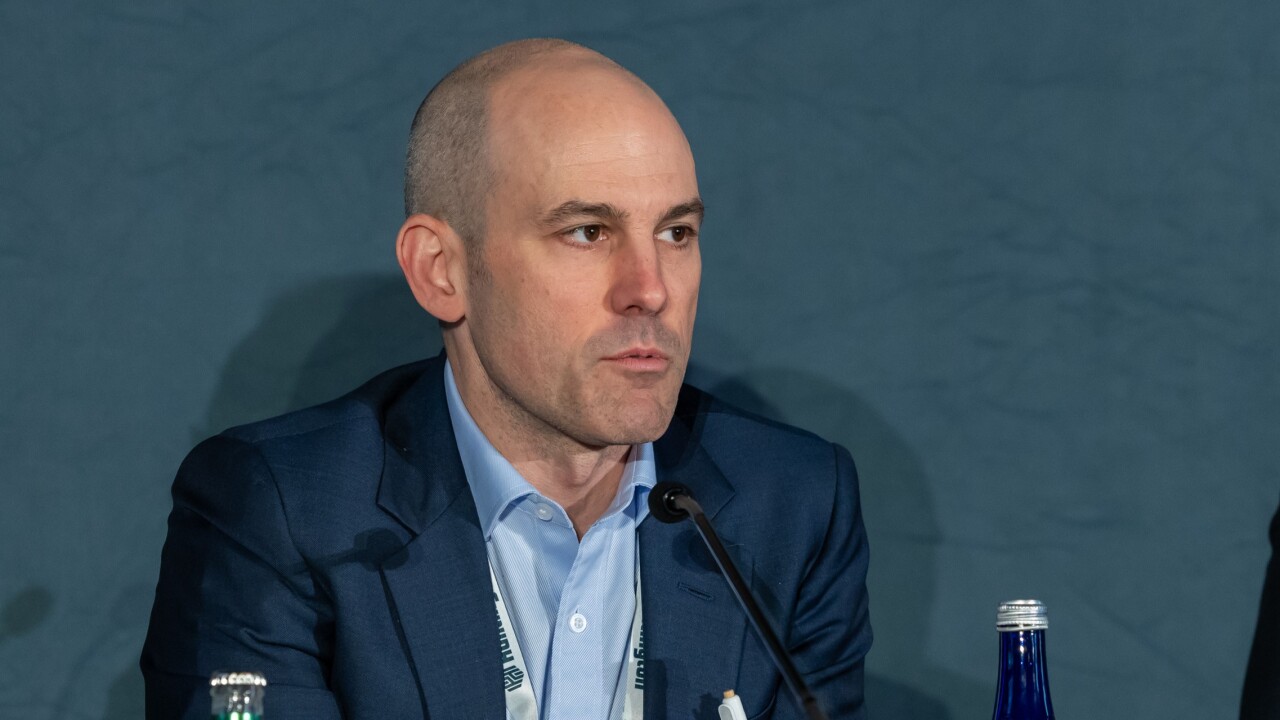LOS ANGELES — Poway Unified School District, which became California's unwilling poster child for expensive capital appreciation bond issuances, is considering a bond buyback and refinancing to retire some of its more expensive maturities.
Poway was thrust into the spotlight when publication Voice of San Diego detailed how the San Diego County district sold $105 million of CABs that require nearly $1 billion in debt service at their 40-year maturity, without an option to call the bond.
That spotlight triggered investigations into district bond sales across the state and legislation that restricts how school districts can issue some bonds, notably setting limits on CABs.
San Francisco financial advisor Dale Scott thinks he has come up with a solution for some school districts who have issued non-callable CABS with steep repayment schedules at the tail end.
Scott's team presented the Poway school board with two different scenarios during August meetings.
The school board has not made a decision to hire Scott to conduct the combination general obligation bond buyback/refinancing yet. First, it plans to hold well-advertised public meetings in late September and early October, so that taxpayers can weigh in on the proposals, said Jessica Wakefield, a school district spokeswoman.
"Poway has not made any decisions. It is something under consideration," Scott said. "They have done a very good job of making sure the public has a chance to chime in. They are taking a good approach as it is something that has been a very controversial issue for them."
A major reason the district issued the CABs in the first place was the ability to raise capital without increasing property tax rates.
In the short run, the proposals to buyback and refinance CABs would result in a property tax increase of either $8 or $12 per $100,000 assessed value, but in the long run could save the school district between $93 million and $130 million over a 20-year period, Scott said.
The model that results in a $12 per $100,000 AV increase involves buying back 20% of the bonds pro rata across all the maturities over a 20-year period. That scenario results in $93 million in savings over 20 years. The other scenario that would result in the $8 per $100,000 AV tax increase involves buying back the most expensive debt, targeting maturities in the last five years, but would result in $130 million in savings.
Scott said the actual solution would probably be a combination of the two. He described what he presented to the school board as pro rata involving broad brush strokes to show how the program would work.
The school district contacted Scott after learning of presentations he had made to other districts.
His team was involved in the August 27 refunding of $37 million in Stockton Unified School District bonds using a similar approach. Raymond James and Barclays acted as the repurchasing agents on a portion of $31.2 million in 2011 CABs and $24.9 million in 2011 convertible CABS issued by Stockton. Raymond James and Barclays also acted as the underwriter for the refunding.
The district was able to acquire and refinance 30% of the CABs, Scott said.
"The program recognizes that a tender of all of the bonds is unfeasible, but you can acquire a portion of the bonds, in many cases, and that has the potential for enormous savings," he said.
The team assembled by Scott has been working with a number of school districts. He said it just happened that Stockton USD was ready to move forward first.
"For four years, we were hearing people say you can't get your hands on these bonds," Scott said. "I think we are to the point where we have come up with a method that allows it to actually occur. And yes, that took a lot of time and effort to get the moving parts working in order to do that."
Part of what appeals to Poway officials is that Scott already had two banks that were willing to act as repurchase agents of the existing bonds, said Todd Gutschow, PUSD's school board president.
To make the model work, banks were needed at the front end to repurchase the CABs, before they could be replaced with current interest bonds at lower interest rates, Scott said.
"The hurdle you face is, where do you get the money to buy them?" Scott said.
Having Raymond James and Barclays on the team answers that question. The banks buy the CABs for a short-term period and holds them until the refunding bonds are issued.
"Under the agreement, they are paid the cost of funds - and they are one of the team members," Scott said. "They purchase the CABs and then are helping to sell the CIBs."
The banks are only be paid upon success, so they would be paid no fees if they are unable to acquire the CABs. The full team also includes law firms Orrick, Herrington & Sutcliffe and Jones Hall.
"This is obviously a problem that has haunted a number of school districts," Scott said.
Poway officials are weighing concerns about the generational transfer of costs against putting a larger burden on taxpayers now, said Gutschow. He added he still isn't convinced that the district needs to do anything.
Because the strategy is to repurchase bonds with later maturities and retire them, the savings on property taxes would come from 2030 to 2051. If a taxpayer sells his or her house before then, he or she paid extra without realizing any savings, Gutschow said.
If the district retains the CABs it issued, Gutschow said, it could be paying back the money in later years at 20 cents on the dollar when inflation is factored in.
That needs to be weighed against how predictable the tax rate will be and if the district will need to create more bonding capacity for future schools, he said.
The school board hopes to make a decision by November. In addition to allowing for more time for public discourse, three of five of the school board members are running for election on Nov. 4. They want to make sure the decision came after the election, he said.





